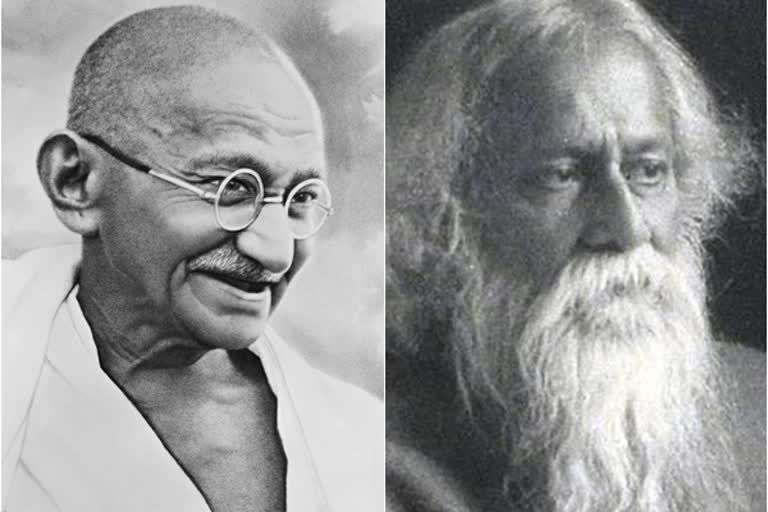Hyderabad:The impact of the paradigm of the Enlightenment modernity with its self-proclaimed association with progress and its cultural, political and ideological confrontation with India has sparked off acrimonious debate among scholars. Mahatma Gandhi and Rabindranath Tagore countered the Eurocentrism of the Enlightenment discourse of modernity that occluded cultural specificities and denied moral and social relativity in its quest for universalism.
Though we often talk about the debate between Gandhi and Tagore regarding Charka, their ideas had some points of similarities. Tagore’s vision of Swadeshi Swamaj seems to have striking similarities with Gandhiji’s idea of Swaraj though he widely differed from Gandhi on his views on nationalism, cultural exchange and the role of science and technology in life.
Tagore had radical views on nationalism and mounted vituperative attack on the Western idea of nation-state in his Nationalism lectures in 1917. He consciously maintained a safe distance from militant nationalism and altered us to the destructive facet of nationalism under the veneer of patriotism. (one can think of Sandip in Ghare-Baire).
Though Tagroe’s admiration for Gandhian non-violence as a strategy of resistance is seen in Muktadhara, he did not support Gandhi’s non-coopertaion movement and Charka. Gandhi completely rejected foreign goods and used indigenous things.
For him, Khadi was not merely an emblematic site of countering Western modernity but a sartorial code deeply loaded with political message of decolonization. Gandhi gradually emerged as a counter-Enlightenment ideologue and discarded European paradigm of modernity in all spheres to negate its epistemological and ontological associations with everyday life.
Tagore had a dialogic interaction with the discourse on modernity and he sought to endorse the legacy of European modernity in the sphere of science and technology.
Both Gandhi and Tagore strongly believed that village centrism is the basis of Indian culture. In Harijan Gandhi clearly stated: “If the villages perish, India will perish too. It will be no more India”.
